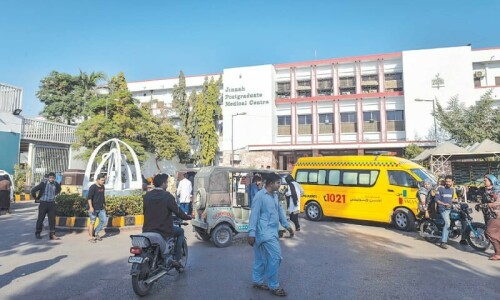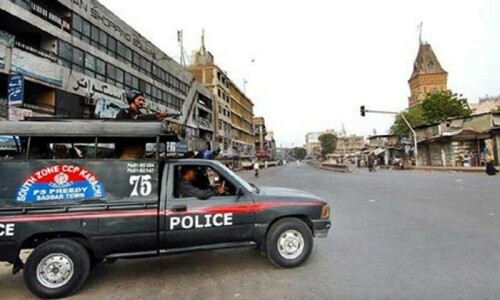KARACHI: Sarshar Siddiqui, who died on Sunday aged 88 after suffering from lung cancer, was a poet whose initial work was filled with scepticism but later on he composed religious verses. Despite his ideological metamorphosis, migration and displacement were consistent themes of his poetical works and his newspaper columns. As a columnist he was mostly preoccupied with the deterioration in the usage of Urdu in popular culture.
During the pre-partition years he was inspired by the likes of Maulana Hasrat Mohani and his strong anti-British thoughts and his close association with the Progressive Writers Movement also stamped a left-leaning identity over his poetry. According to Prof Sahar Ansari, prominent literary critic, one can even find Mirza Yaas Yagana’s imprints on Sarshar Siddiqui’s poetry.
Sarshar Siddiqui whose birth name was Asrar Hussain Mohammad Amaan was born in Kanpur, India, on Dec 25, 1926. His ancestors belonged to Moazzammabad in Unnao district, United Provinces. His father, Aulad Hussain, was a hakim who taught for a while in Tibbiya College in Delhi. According to Dabistan-o-ka-Dabistan, a significant encyclopaedia on Urdu poets and writers, Sarshar Siddiqui passed his matric exam from a school in Calcutta and his intermediate from Haleem Muslim College in Kanpur.
This was the 1930s-1940s in pre-partition India when calls for a separate homeland for the Muslims of the subcontinent were reaching a feverish pitch and the Communist Party of India had launched an anti-imperialist movement. The writers and poets with left-leaning ideas launched the Progressive Writers Movement that soon attracted the likes of Sarshar Siddiqui, who threw himself wholeheartedly into the movement by actively participating in the party meetings and keeping company with Maulana Hasrat Mohani, one of the founders of the Communist Party of India. Sarshar Siddiqui’s first ghazal was published in 1944 in Nigar, a literary journal published in Lucknow and edited by Niaz Fatehpuri.
In 1949 his first poetical work Irtiqa was published. The following year he migrated to Pakistan where like many others he had to face an uphill struggle in finding employment in their new homeland. He eventually managed to find a job in the National Bank of Pakistan in 1955 working there until his retirement in 1984.
His first four books of poetry — Irtiqa, Pathar ki Lakeer (1962), Abjad (1983) and Baynaam (1983) — reveal a direct and brusque form of expression with concerns relating to migration, displacement and other everyday issues.
The turning point in his life came in 1984 when a friend suggested that he join his group for Umrah. He returned a changed man professing his love for the Prophet (PBUH) and his poetry was subsequently shaped by this spiritual experience composing religious verses.
According to Prof Sahar Ansari, he experimented with poetical forms such as free verse and haiku while writing naat. His last book of poetry was Khizaan ki Aakhri Shaam (1988).
Sarshar Siddiqui was also a prolific columnist, penning his pieces for the Express and the Jang newspapers. He tackled several themes in his columns, but prominent were issues of migration and the decline in Urdu diction.
He is survived by his wife and a son.
Published in Dawn, September 8th, 2014












































Dear visitor, the comments section is undergoing an overhaul and will return soon.